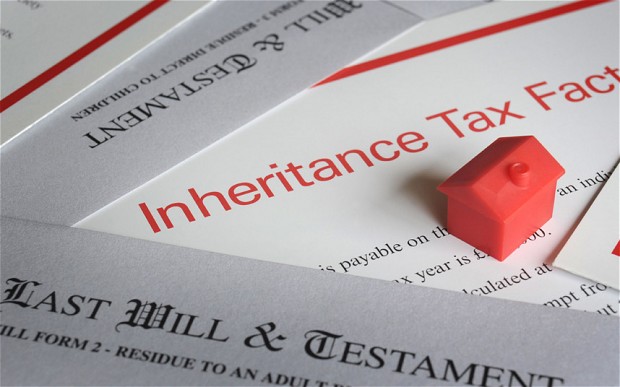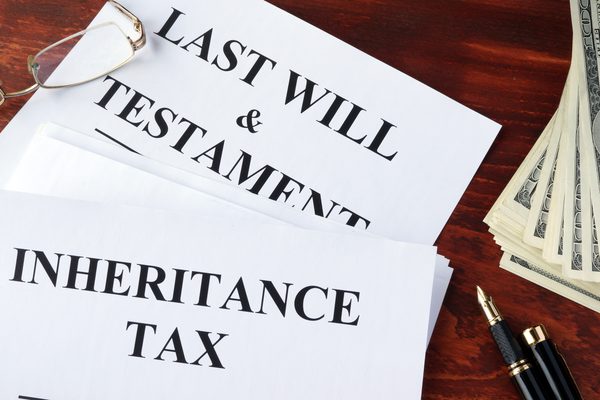
Inheritance tax is a tax that is levied on the estate of a deceased person when it gets transferred from the deceased person to the legal beneficiary. The estate of a deceased person can have a wide variety of assets like stocks, business ownership, real estate, investments, insurance policies, cash, and other valuable goods.
Inheritance tax in the UK was initially introduced in order to create a more egalitarian society. Proponents of this tax believed that by levying an inheritance tax, wealth redistribution can take place. If there is no such tax, then the rich will remain rich because their wealth simply gets transferred from one generation to the next.
While this concept might sound convincing to some people, some opponents of this tax think differently. The opponents make the point that the income which was used to purchase the assets in an estate was already taxed in the first place. Besides, the income which the assets of the estate generate, are also taxed. So, inheritance tax is like double taxation and completely redundant.
No matter which side of the debate you are on, inheritance tax is a reality. The tax rate normally is 40%. Estate values often run into hundreds of thousands of dollars and even millions of dollars. 40% of that value minus the debts or liabilities is no small amount. You could be looking at an inheritance tax bill of tens of thousands of dollars in average cases. High-value cases will see larger inheritance tax amounts.
In almost all cases, the inheritance tax is paid off from the estate being transferred. The beneficiary does not have to pay the tax from his/her pocket. That might provide some relief, but one would still lose a significant chunk of the estate’s value due to inheritance tax. Hence, the best way to face such a tax is to plan ahead. There are many ways in which you can optimize the outflow arising out of inheritance tax. However, you can also take some steps to avoid inheritance tax altogether.
If you are an old estate owner, and if you are concerned that your heirs or beneficiaries will only get a partial component of your estate minus the tax portion, then the following are some ways in which you can ensure that your beneficiaries get the maximum value or all of the estate without having to worry about inheritance tax.

Making a will is one of the most important financial planning steps in a person’s life. A will makes sure that your assets get distributed in a legal and systematic way without creating conflicts. A will also optimize and even exempt inheritance tax depending on the case at hand. Hence, in order to have any chance of avoiding inheritance tax, a will is essential. Make one while you are alive and it will help your heirs and beneficiaries in a major way.

Inheritance tax is not levied on estate values below £325,000. There is also an additional allowance under the name of main residence nil rate band. The main residence allowance is applicable to the main home of an estate owner when it is being transferred to the direct descendants of that person, such as children, step-children, or grandchildren. The additional allowance is £150,000 and that number is understood to go up to £175,000 in the year 2020. So, the effective exemption limit is £500,000.
What is also cool about the inheritance tax limits is that any unused exemption limits can be transferred to a spouse or a civil partner. For example, if you are married or have a civil partner, and if one of the partners dies leaving behind an estate whose value is below £325,000, then the difference between that low estate value and 325,000 gets added to the £325,000 limit of the partner who is still alive.
And best of all, if the estate value of a deceased person does not cross any exemption limits, then inheritance tax is avoided altogether.
You can give assets of your estate as gifts to your family members or any people who you want to give. Normally, these gifts attract inheritance tax. But, if you give away gifts and then survive for at least 7 years post giving the gift, then those gifts do not attract inheritance tax. If you die within 7 years of giving the gift, then the inheritance tax rate varies depending on how many years have passed between the time of death and the date of the gift. If you can live long enough, then you might just avoid inheritance tax completely.
Assets which are in a trust do not form part of an estate. Assets which are not part of your estate will not be liable for inheritance tax. Hence, you can gain major tax benefits by keeping your assets in a trust and instructing the trust to transfer those assets to your children when they turn 18. This is a safe and easy way to make the assets benefit your children and also optimize tax planning.
When you keep assets in a trust, it is possible to earn income from those assets while you are still alive. You need to put your assets in an “interest in possession” trust. This kind of structure allows you to earn income from those assets and then have those assets benefit your children after your death. Inheritance tax will also be avoided. It must be noted, however, that you do need to pay income tax on the income which you will earn from the assets which you place in an interest in possession trust.
You can buy a life insurance policy and then place it in the trust where you have your assets. The proceeds from this life insurance policy can then be used to pay off the inheritance tax liability. Thus, your estate will remain unaffected and all of its value can be transferred to the legal beneficiaries.
The way to decide how much cover to opt for, simply try to estimate the potential inheritance tax bill in the future and buy a policy which will reasonably cover that tax amount.
One way to minimize and eliminate inheritance tax is to eliminate the taxable amount itself. If you can make regular gifts from any extra cash or extra income that you might be getting, then you can show such gifts as “gifts out of income”. Such gifts are outside the scope of inheritance tax.
You only need to make sure that the gifts which you give shouldn’t come out of your normal monthly expenses and they shouldn’t be deemed to reduce your standard of living in any way. It should be normal income which does not affect your normal expenditure or artificially reduces it. Giving away £3,000 is legally allowed annually.
You are also allowed to gift £5,000 to your child as a wedding gift. You can gift £2,500 as a wedding gift to your grandchild and £1,000 to a relative or friend.

If the value of any of the assets has fallen and if there is no capital gain, then it may be a good idea to pass on those assets to the beneficiary while you are alive. Any subsequent capital gains after the passing over of the assets will accrue in the estate account of the beneficiary.
Your account will be clean and you won’t have to worry about inheritance tax being taken out from your estate provided that you live for at least 7 years after the transfer of the assets. The important caveat in this option is timing. The longer you live, the better your chances of avoiding inheritance tax on assets which do not have a capital gain.
 If you own a business and hold it till two years before your
death, then the transfer of that business to your beneficiaries
may be eligible for business property relief of BPR. Depending on
how you structure the business, you can avoid inheritance tax on
the business altogether. Consult a tax professional for more
information on this.
If you own a business and hold it till two years before your
death, then the transfer of that business to your beneficiaries
may be eligible for business property relief of BPR. Depending on
how you structure the business, you can avoid inheritance tax on
the business altogether. Consult a tax professional for more
information on this.
Any assets which you donate to a charity are free from inheritance tax. Additionally, if you leave 10% or more to charity, then the inheritance tax rate on the remaining assets also drops from 40% to 36%. So, you not only save inheritance tax completely on the donated portion, but you also save taxes on the taxable amount. It is like a double win. Do good and give something to charity.
A fantastic way to avoid inheritance tax is to not pass on the assets after your death. Instead, you might as well use the assets yourself before you die. You can sell your investments or real estate and use that money to buy something. Perhaps, you always dreamed of a sports car or a sailboat.
You can also use the money to go on a world tour or a memorable vacation. Such experiences cost money but they will stay with you for the rest of your life. Hence, the money will be well spent. Such spending may also give you a lift in an otherwise dull retirement life. Why pay 40% taxes when you can enjoy all of it for yourself.